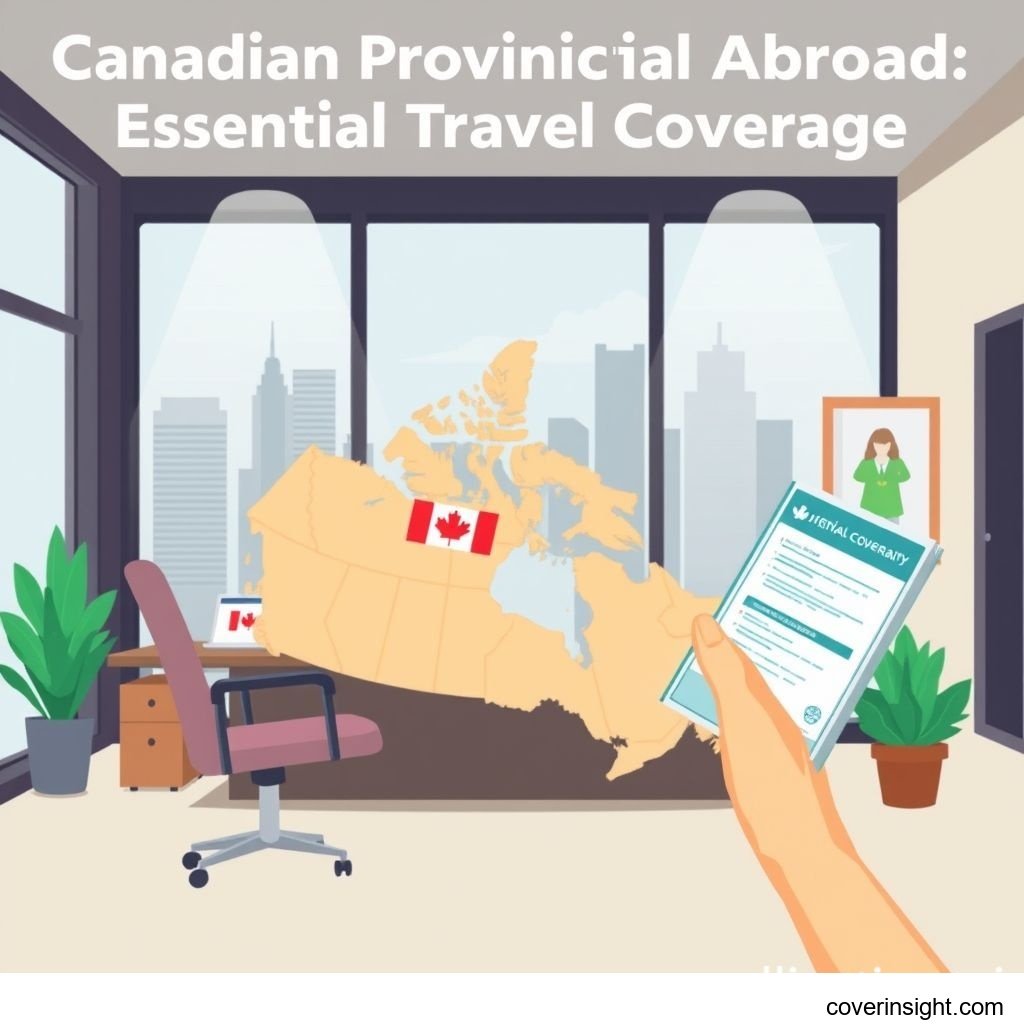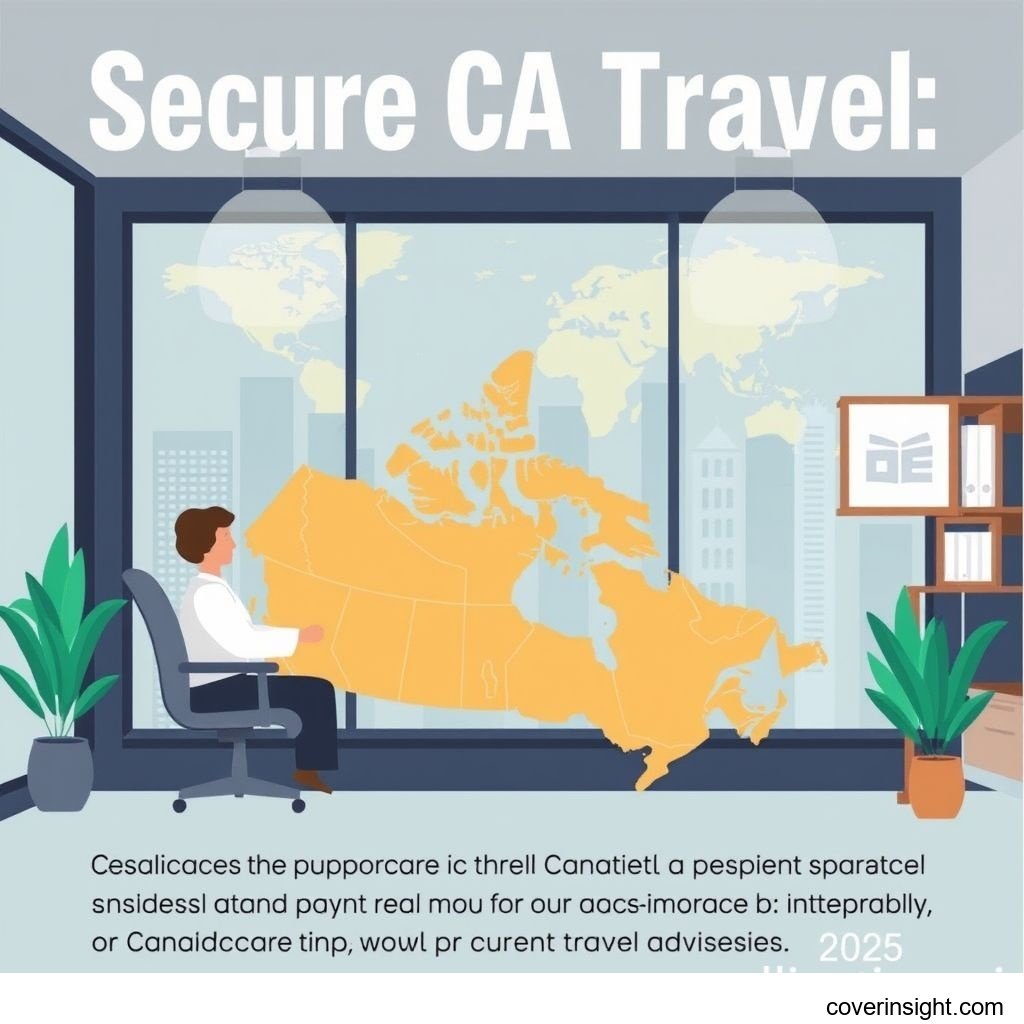Introduction
As a Canadian planning to travel abroad in 2025, it’s absolutely crucial to understand the limitations of your provincial health coverage when you step outside the country. While your provincial health insurance plan, such as OHIP in Ontario or MSP in British Columbia, provides excellent coverage within Canada, it offers very limited, if any, financial protection for medical emergencies or illnesses that occur while you're travelling internationally. The importance of securing essential travel coverage cannot be overstated; otherwise, you could be left holding the bag for exorbitant medical bills, turning a dream vacation into a financial nightmare.
Coverage Details
What’s Included
Provincial health plans do offer some coverage for out-of-country emergency medical expenses, but it's typically a drop in the bucket compared to actual costs. For instance, many provinces might only reimburse a fixed, nominal amount per day (e.g., $50-$100) or a tiny percentage of the total bill. This might cover little more than a doctor's visit, certainly not a major hospital stay or surgery. According to data released by various provincial health ministries, Canadians facing medical emergencies in destinations like the United States can incur bills in the hundreds of thousands of dollars, making the provincial reimbursement seem almost negligible. It's truly a situation where you get the short end of the stick if you rely solely on it.
Common Exclusions
While provincial plans offer minimal coverage, travel insurance, which is what we're really talking about, often has its own set of common exclusions. These typically include pre-existing medical conditions not declared or stable for a certain period, elective or non-emergency procedures, medical tourism, mental health conditions, complications related to pregnancy if occurring close to the due date, and injuries sustained from high-risk activities like bungee jumping or heli-skiing unless specific add-ons are purchased. Repatriation (the cost of bringing you home, medically attended or otherwise) is also almost universally excluded from provincial plans and must be covered by comprehensive travel insurance. Similarly, dental emergencies, prescription refills, and vision care are generally not covered by provincial plans while abroad.
Cost Analysis
Price Factors
The cost of essential travel coverage isn't one-size-fits-all, and several factors play into what you'll pay. Your age is a significant one; typically, premiums increase as you get older due to higher associated health risks. The length of your trip, your destination (travel to the U.S. often costs more due to higher medical expenses there), the amount of coverage you choose, and any pre-existing medical conditions you might have will all influence the price. Furthermore, whether you opt for single-trip or multi-trip annual plans, or if you plan on participating in adventurous activities, will impact the final premium.
Saving Tips
Looking to save a few pennies? There are several ways to reduce the cost of your travel insurance without leaving yourself exposed. Consider bundling your travel insurance with other policies, such as your home or car insurance; some providers offer discounts for this. Shopping around is always a smart move – don't just go with the first quote. Comparison websites and independent brokers can help you find the best deal. For families or frequent travellers, an annual multi-trip plan often works out cheaper than purchasing individual policies for each trip. Opting for a higher deductible can lower your upfront premium, but remember you'll pay more out-of-pocket if you make a claim. Lastly, if you have a credit card that offers travel insurance as a benefit, ensure you understand its terms and conditions fully, as coverage can be limited.
FAQs
-
How much does provincial health coverage abroad cost?
It doesn't "cost" anything extra beyond your standard provincial health care contributions. However, what it covers abroad is minimal, often just a fraction of actual medical expenses, and pales in comparison to the potential costs.
-
What affects premiums?
Premiums are primarily affected by your age, trip duration, destination, desired coverage limits, any pre-existing medical conditions, and the type of activities you plan to undertake.
-
Is it mandatory?
No, purchasing supplementary travel insurance is not mandatory by law for Canadian citizens travelling abroad. However, it's highly recommended and, frankly, a no-brainer for your financial well-being. Think of it as "better safe than sorry."
-
How to choose?
When choosing, consider your specific health needs, the length and destination of your trip, and the activities you'll be doing. Compare different providers' policies for coverage limits, deductibles, exclusions, and customer service. Consulting resources like the Insurance Bureau of Canada or the Financial Consumer Agency can provide valuable insights and consumer guides. For broader understanding, refer to our Insurance Resources Global.
-
Consequences of no coverage?
The consequences of travelling without adequate coverage can be catastrophic. Imagine the Smith family from Calgary, enjoying a sunny vacation in Florida when their 10-year-old suddenly needs an emergency appendectomy. The hospital bill quickly climbed to over $50,000 USD. Their Alberta Health Care plan covered less than $2,000, leaving them to foot the remaining $48,000 out of their own pockets – a sum that would break the bank for most families. This isn't just a hypothetical; such situations are a recurring nightmare for Canadians unprepared for the realities of foreign medical costs. Without proper insurance, you could face immense debt, struggle to get necessary treatment, or even be denied medical evacuation if you can't pay upfront. For more localized information, check out our CA Insurance Home.
Author Insight & Experience
Based on my experience living in Canada and hearing countless stories, the biggest misconception among Canadians about international travel is that their provincial health card acts as a golden ticket anywhere in the world. It simply doesn't. As someone who's seen the aftermath of medical emergencies abroad, I can tell you that the stress of a health crisis is compounded tenfold when you're also wrestling with a five or six-figure hospital bill. It's a hard lesson to learn the expensive way. Investing in comprehensive travel insurance isn't just about covering potential costs; it's about peace of mind, knowing that if something goes sideways, you're not left to navigate a foreign medical system and its financial implications all on your own.








Comments